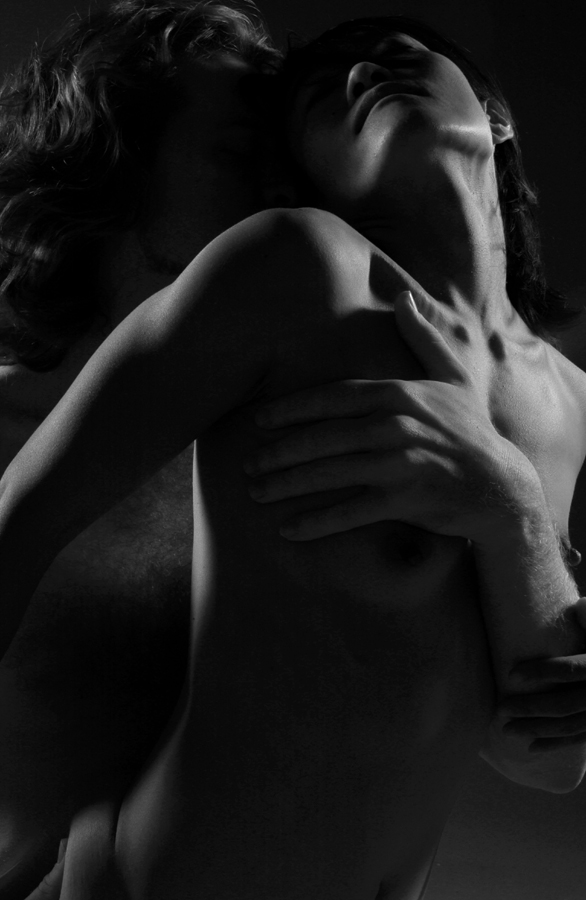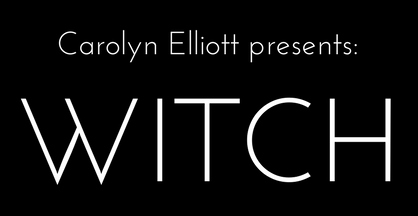Her bitching yields to a mixture of confusion and terror that match her words: “What, what are you doing?” I release my clench from the steering wheel and turn to her to resume our quarrel, but not with speech..
This is not an article about talking it out.
The headlights illuminate the cloud of dust from the abrupt turn off the country road. It’s 3am. We’re on a dirt patch between the road and the railroad tracks in the middle of nowhere.
My left hand unbuckles her passenger side seat belt while my right seizes the roots of her hair. That hand pulls her across my lap while my left opens the driver side door to let her head poke out.
This is not an article about how to treat your significant other.
I proceed to spank her. Hard enough that she vocalizes pain. Soft enough that she’s willing to feel it. After a particularly flush tolchok she yelps “Ok!” in the same tone of a child who just got tagged in hide and seek. She contorts around to look at me. We both laugh.
This is not an article about how to win friends and influence people, the virtues of domestic civility, nor the metamorphosis of 21st century Feminism. (Ok, maybe it is a little about the next wave of Feminism.)
At 3am in upstate New York, my girlfriend and I were driving to a campsite where our friends were. We were cranky. We argued. At the time of this writing I honestly don’t remember what the argument was about. Whatever it was about was not really what it was about. What it really was about and what this article is about, is playing with darkness.
There’s a lot of talk of “shadow work” in healing circles, and “curing” chaotic behavior in psychology, not to mention religion. While great material on darkness does exist, I find a lot of it overly complicated, counter-beneficial, and BORING.
Here’s what we really need to know about playing with the dark:
1. The difference between Light and Dark is Approval
Is choking one’s lover during sex a dark impulse? What about punching someone who insults you? Eating sugar at 2am? Leaving the toilet seat up?
Depends on whom you ask.
What’s considered the ultimate taboo to one, may be completely banal to another. Darkness is subjective. A thing is “dark” to an individual if he or she doesn’t fully approve of it. In other words, the person feels some sort of shame.
We feel shame when we don’t want to see something that’s there. Hence, we put it in the “dark.”

2. Fascination lies at the “Shadow Line”
We are drawn to that which lies on the edge of what we can approve of. This place where light turns to dark, the “Shadow Line,” tends to be what we find the most interesting.
Even in the United States of Happily-Ever-After, we don’t care to watch a film or show where everything is perfect all the time. That’s boring.
HBO has nailed popular interest pretty well: sex, violence, and gross displays of wealth. These also happen to be three major topics that the generally population disapproves of. A shameful prude can go on a moral high horse about how modern society has only recently become corrupted etc. etc. but sex, money, and violence have been a hot topics since the earliest days of humanity.
As mortal, time-bound, incarnate beings we crave the light-dark contrast, because otherwise we’d have nothing worth talking about.
3. Dark contrasts with it’s equal and opposite in Light
Look at humor. The difference between children’s jokes and grown-up jokes isn’t a matter of intelligence, but shame. As children grow into adults they learn new topics to feel shame about, and therefore laugh at.
Laughter comes as a release of tension. It requires gravity for the levity to have any effect. Good comedy grounds us in something real and serious (and often taboo), then releases the tension with surprise.
“We laugh most often to cover our feelings of embarrassment. This can be the result of either having unintentionally done or said something foolish, or having been tricked. If we have been tricked, we have been surprised. Surprise is one of the most universally accepted formulas for humor.” – Comedy Writer Secrets (Helitzer)
To surprise is to quickly make known something that was unknown, in other words, to bring light to that which was in the dark.
In that sense, all comedy is dark comedy.
Many say comedy is therapy, we laugh to heal our wounds. While I don’t disagree, I’d rather flip the causality: We get wounded to have opportunities to laugh.
4. What doesn’t kill you, keeps the game going
I have a friend who recently told me that she is grateful for her childhood hardships because they have made her more resilient.
On the one hand, “what doesn’t kill you makes you stronger” is a nice way to rationalize why a benevolent Universe would let woes befall you. On the other hand, if we didn’t have hardships, why would we need resilience in the first place?
Jerry Seinfeld has that joke about how most people have no reason to work out, other than to get better at working out. Perhaps the ends and means can be the same thing.
In my industry I meet tons of dealers and users of the highly addictive drug known as “healing.” Frankly, I’ve never met anyone on a quest for healing that has satisfactorily become healed. When we try to heal what’s wrong, we always find more wrong.
The truly effective healers I’ve witnessed are the ones that hold true that their clients are already whole and perfect. The healing modality is delivered, not because the receiver is broken and needs it, but because at a soul-level “healing” is a fun thing to do.
I regularly have people contact me with sexual problems (i.e. erectile dysfunction/impotence, low satisfaction, and anorgasmia.) My clients’ “problems” rearrange themselves organically when they develop better ways to exercise their attention. We don’t “heal” from our psychosomatic ills as much as we grow bored with them and move on to more compelling things.
Your darkness doesn’t need fixing. At the very worst, it’s a sign that your attention is under-utilized.
5. Darkness only becomes dangerous when taken too seriously.
Ok at some point I had to address the potential hazards.
There are some dark impulses that do kill us. Death for instance.
Not all impulses are fun to act out completely. If murder actually occurred every time every time someone said “I’m gonna kill you” there wouldn’t be too many people left on Earth.
Carl Jung models the psyche with archetypes, symbolic representations of our subconscious drives. The “dark” archetypes are notable because they are the less visible aspects of our personality.
Archetypes are like theatrical roles. In order to play them realistically we voluntarily “descend our consciousness,” or pretend to forget reality, but only in the temporary context of play.
That is what James Carse in Finite and Infinite Games calls “self-veiling.”
“Players must intentionally forget the inherently voluntary nature of their play, else all effort will desert them…[T]he actress does not see herself performing but feels her performed emotion and actually says her memorized lines–and yet the very fact that they are performed means that the words and feelings belong to the role and not to the actress…not for a second will this woman in her acting be unaware that she is acting. She never forgets that she has veiled herself sufficiently to play this role, that she has chosen to forget for a moment that she is this woman, and not Ophelia… Self-veiling is a contradictory act– a free suspension of our freedom.”
If we stay conscious of the playful nature of our archetypal roles, we need not fear “what we will become” if they are enacted.
6. Our Darksides tend to find each other
My girlfriend and I had a lot of fun playing out that impromptu scene. In many ways it was totally worth getting into an argument over. One could say we each got a rise out of each other to do exactly that.
Archetypal roles often need context to make sense. The role of mother only makes sense in relation to a child. A victim needs a perpetrator. A hero only exists when there is someone or something to save.
We tend to filter and attract aspects of other people that justify our own archetypes coming out. If you find yourself met by another’s darkside, be honest with yourself. Is there something about the interaction you find interesting? You may have drawn out that person’s darkness to satisfy a part of yourself.
7. Creative impulses and passion come from the dark
Where do creative ideas come from?
A mystic may argue that it comes from some benevolent or almighty source, one’s energy body, the ethers, or the Muse. A scientist may argue that it’s the involuntary connection of neurons that represents the mind’s subconscious associations. Either way, we can all agree that creativity is a function unseen.
Some of the most effective practical advice I’ve gotten on unlocking creativity have been seemingly irrational things such as going for walk, having hot sex, repeating a mundane activity over and over, or playing with kids or animals. All of those activities have one thing in common: descent of consciousness.
Passionate ideas are creatures of the underworld. In order to bring them the surface, you need to “turn the lights off.”
The impulse to dramatically pull of the country road and spank my girlfriend wasn’t rational nor planned. I don’t know where it came from. All I know is that I was receptive to it because 1) I was emotional from the argument and 2) 3 am numbs out analytical thought.
The reason that the witching hour lends itself to magic is because that time of day offers an altered state of consciousness where one becomes receptive to ideas harder to accept when the lights are on.
Creation is a form of madness.
The darkside is the wild beast inside of us that isn’t easily approved of. It’s stubborn, chaotic, and sometimes ugly. It’s also our inner source of creativity, passion, magnetism, playfulness, sex, and loving connection.
At 3am that night my girlfriend and I were able to turn an unresolvable argument into something that not only was exhilarating and fun, but also strengthened our bond. It required an openness to inner demons. And humility in the face of love.
If we want a peaceful life, we can work a lifetime to restrain the dark. However, it’s much more fun and enjoyable to play with it. When we learn to play with our darkness life becomes a lot more interesting.
Playing with your darkness can be challenging, given that you are trying to look at hidden aspects of your psyche through conditioned patterns of avoidance. It helps to have a second pair eyes, especially those with night vision. That’s where I come in.
For bad witches only, I’m offering free insight to help you play with the dark. Request a coaching session.
Merken
Merken

